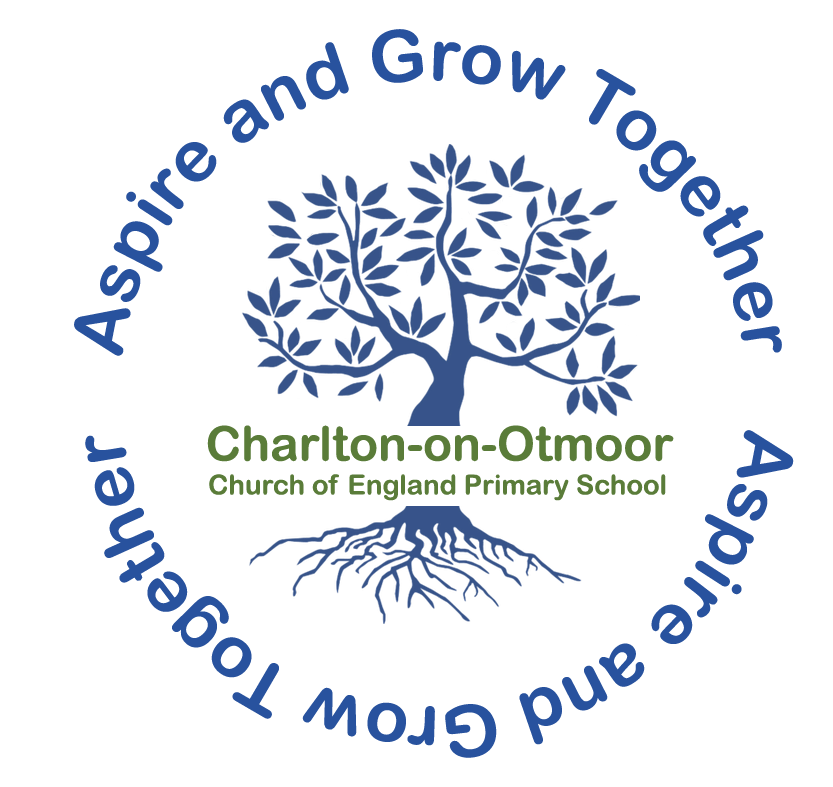Safeguarding
Safeguarding Statement
Charlton-on-Otmoor Primary School is committed to safeguarding and promoting the welfare of children and expects all staff and volunteers to share this commitment.
This means that we have a Child Protection and Safeguarding policy and Procedures in place which can be viewed on our website. All staff (including supply staff, volunteers and governors) must ensure that they are aware of these procedures.
Sometimes, we may need to share information and work in partnership with other agencies when there are concerns about student welfare. We will ensure that our concerns about students are discussed with his or her parents/carers first, unless we have reason to believe that such a move would be contrary to the student’s welfare.
Our Safeguarding Leads (DSLs)
Nadia Gosling- Headteacher/Designated Safeguarding Lead.
Amanda Clarke - Early Years Teacher/ Deputy Safeguarding Lead.
Jennifer Parks - Safeguarding Governor.
You can also contact:
LADOs and School Safeguarding Team
To report an allegation against a person in a position of trust, please contact the LADO and Schools safeguarding team
Schools Safeguarding Team 01865 810603
If you are concerned about a child’s welfare, please record your concern and any observations or conversations that you may have heard and report this to one of the safeguarding leads as soon as possible that day. Do NOT conduct your own investigation.
Multi Agency Safeguarding Hub (MASH): 0845 0507 666
Childline: 0800 1111
NSPCC: 0808 800 5000
If you have concerns regarding e-safety please follow this link: http://www.oscb.org.uk/e-safety/
Domestic Abuse Support
Domestic abuse is defined as “any incident or pattern of incidents of controlling, coercive, threatening behaviour, violence or abuse between those aged 16 or over who are, or have been, intimate partners or family members regardless of gender or sexuality”. The abuse can encompass, but is not limited to:
- psychological
- physical
- sexual
- financial
- emotional
Domestic abuse can also include forced marriage and so-called “honour crimes”.
Controlling and coercive behaviour
Domestic abuse is often thought of as physical, such as hitting, slapping or beating, but it can also be controlling or coercive behaviour. This is important as what might look like an isolated incident of violent abuse could be taking place in a context of controlling or coercive behaviour.
Controlling behaviour is a range of acts designed to make a person subordinate and/or independent by isolating them from sources of support, exploiting their resources and capacities for personal gain, depriving them of the means needed for independence, resistance and escape and regulating their everyday behaviour.
Coercive behaviour is an act or a pattern of acts of assault, threats, humiliation and intimidation or other abuse that is used to harm, punish, or frighten their victim.
We know that the first incident reported to the police or other agencies is rarely the first incident to occur; often people have been subject to violence and abuse on multiple occasions before they seek help.
Safeguarding children exposed to domestic abuse
Children who live in families where there is domestic abuse can suffer serious long-term emotional and psychological effects. Even if they are not physically harmed or do not witness acts of violence, they can pick up on the tensions and harmful interactions between adults. Children of any age are affected by domestic violence and abuse. At no age will they be unaffected by what is happening, even when they are in the womb.
The physical, psychological and emotional effects of domestic violence on children can be severe and long-lasting. Some children may become withdrawn and find it difficult to communicate. Others may act out the aggression they have witnessed, or blame themselves for the abuse. All children living with abuse are under stress.
If you or someone you know is currently experiencing abuse from a partner, ex-partner or family member in Oxfordshire then please contact a2dominion at the website below.
https://a2dominion.co.uk/services/domestic-abuse-support-services
Urgent Support from the Police
If someone needs help now, call the police on 999 (24 hours, 7 days a week)
If you wish to report historic domestic abuse where you or the victim is not at risk of immediate harm, please call the police on 101.
Oxfordshire Domestic Abuse Helpline
0800 731 0055
10am to 7pm, Monday to Friday
National Domestic Abuse Helpline
https://www.nationaldahelpline.org.uk/
0808 2000 247
You can also chat to them on this link - https://www.nationaldahelpline.org.uk/Chat-to-us-online/
10am to 10pm, Monday to Friday
Relate
https://www.relate.org.uk/chat-with-a-counsellor
0300 003 0396
You can talk to Relate about your relationship, including issues around domestic abuse.
Men's Advice Line
Men's Advice Line
0808 801 0327
Advice and support for men experiencing domestic violence and abuse.
National LGBT+ Domestic Abuse Helpline
National LGBT+ Domestic Abuse Helpline
0800 999 5428
Emotional and practical support for LGBT+ people experiencing domestic abuse.
For children
We understand how difficult it is for children to talk about domestic abuse. Whether it's happening now or happened in the past, Childline can be contacted 24/7. Calls to 0800 1111 are free and confidential. Children can also contact Childline online.

Operation Encompass
Operation Encompass is a police and education early information safeguarding partnership enabling schools to offer immediate support to children experiencing domestic abuse.




